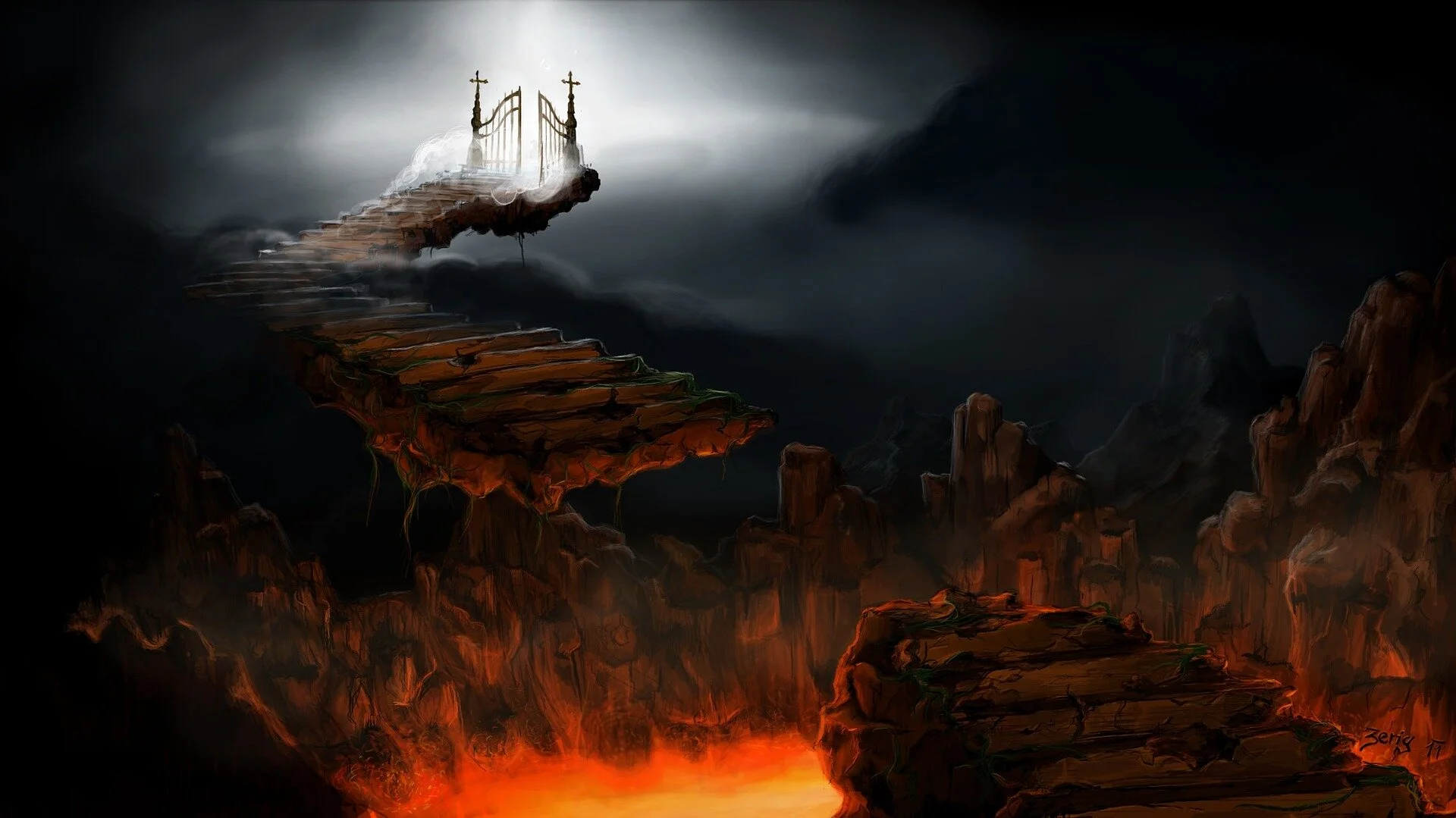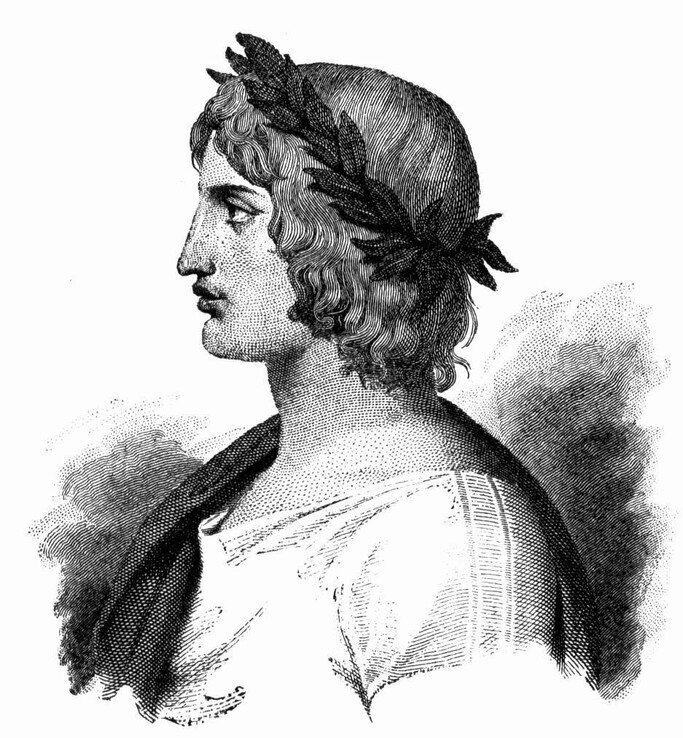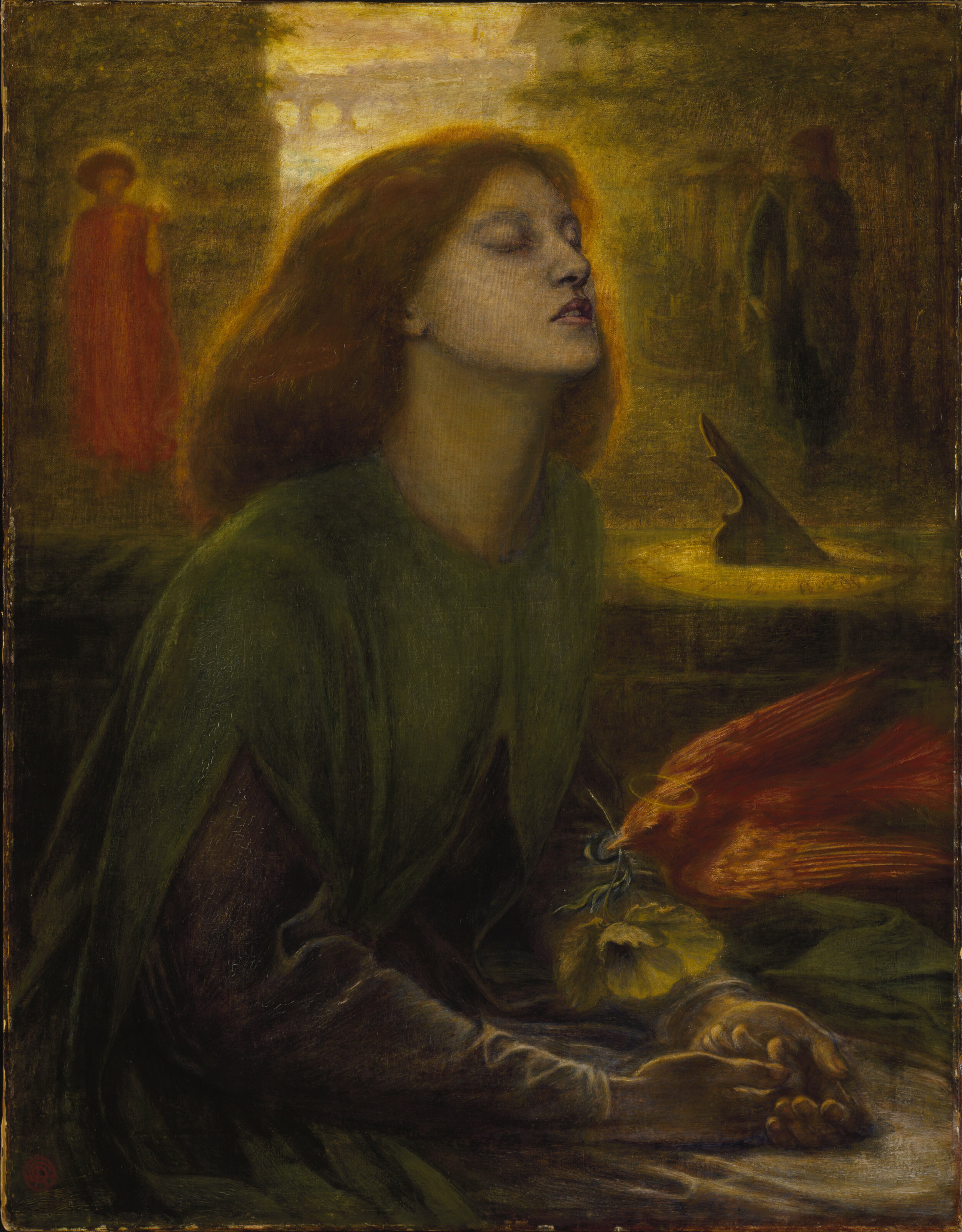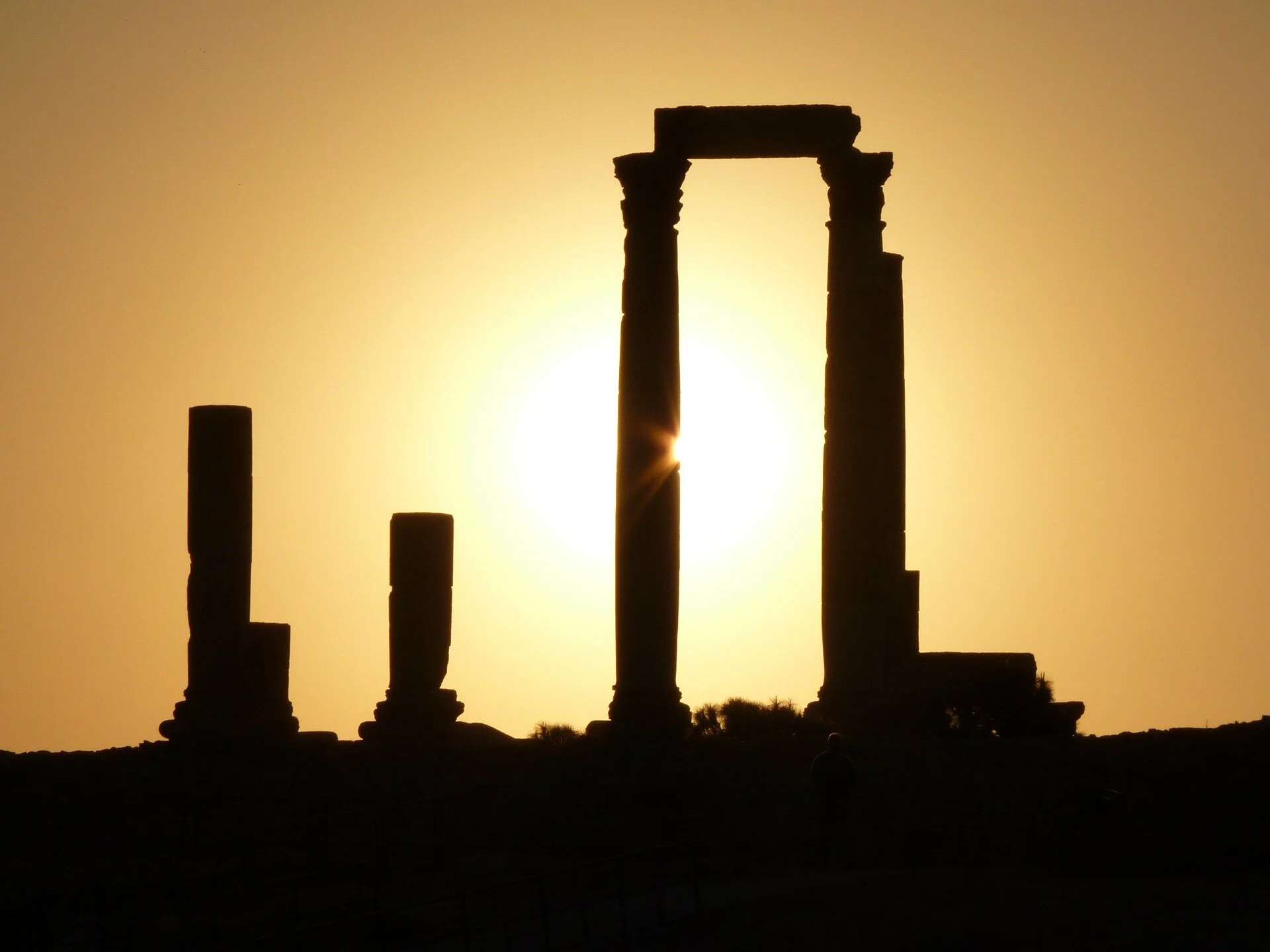Virgil and Beatrice in The Divine Comedy: Symbols of Human Reason and Divine Love
The Divine Comedy by Dante Alighieri is a thoroughly Medieval text, not merely because it was written in the Medieval time period, but also because of the picture Dante presents of the relationship between human reason, symbolized in The Divine Comedy by the poet Virgil, and divine love, symbolized in The Divine Comedy by the character of Beatrice.
In the opening scene of The Inferno, the first book of The Divine Comedy, Dante (the author, the main character, and the first-person narrator) awakens in a dark wood midway through his life’s journey, having strayed from the True Way. A shade (i.e., a spirit or ghost) of the Roman poet Virgil appears to Dante, having been sent by Beatrice to lead Dante on a journey through Hell, Purgatory, and eventually Paradise (Heaven). Virgil leads Dante through the various circles of Hell and partway up the ascent of Purgatory before Beatrice takes over as Dante’s guide the remainder of the way through Purgatory and on to Paradise.
So why must Beatrice take over for Virgil as Dante’s guide? As mentioned above, Virgil symbolizes human reason in The Divine Comedy, the power and achievements of the human intellect left to its own devices without God, without the redemption offered by Jesus Christ, and without the influence of the Holy Spirit. Human reason is symbolized elsewhere in The Divine Comedy by the faint illumination coming from a citadel, what translator John Ciardi calls the “Citadel of Human Reason” in Limbo, the first circle of Hell (see The Divine Comedy, Canto IV), where the virtuous pagans and unbaptized souls, those who were otherwise virtuous but who lived prior to the incarnation of Jesus, and those who were unbaptized and thus unable to be redeemed and allowed to enter Paradise, reside eternally. Virgil explains to Dante that Limbo is where he resides as well, having both lived and died before the time of Christ. Limbo is a place of no punishment but still one of eternal separation from God’s love, and hence a place of no further hope. At the Citadel of Human Reason in Limbo, Dante finds the great humanistic philosophers in the history of philosophy: Socrates, Plato, Democritus, Diogenes, Thales, Anaxagoras, Zeno, Heraclitus, Empedocles, Cicero, and Seneca—even Euclid, Ptolemy, Hippocrates, and other figures symbolizing the great achievements of pure human reason.
A 19th-century illustration of the Roman poet Virgil, who symbolizes human reason in The Divine Comedy.
What can we make of the faint glow Dante observes from the Citadel of Human Reason in Limbo? Light has been a metaphor for knowledge at least since the time of Plato’s Allegory of the Cave (Republic, Book VII), with the sunlight outside the cave representing knowledge of the various Platonic forms (Justice, Goodness, Piety, Love, etc.). Although Dante retains the light metaphor, the light of human reason is not a bright, blinding light like it was for Plato but rather a relatively dim light in comparison to the light of God and divine love seen in Paradise later in The Divine Comedy. Human reason is virtuous and provides some illumination, but human reason, according to Dante, still pales in comparison to the light of God and the faith, hope, and love that this greater light represents in The Paradiso.
This is why I characterize The Divine Comedy as a thoroughly Medieval text. In the Medieval period, reason was generally seen as subordinate to faith, and to other facets of the Christian worldview such as divine revelation, to God Himself, to divine love, and so on. Reason did not stand alone in the Medieval period as it did both for the Ancient Greek philosophers like Plato and for philosophers in the later Modern period from Descartes at least through Kant, and arguably for many of us culturally, intellectually, and scientifically today. According to the Medieval mindset, human reason is fundamentally finite, imperfect, and flawed compared to divine reason and divine understanding, which our limited human reason can only partially grasp or understand.
According to Medieval philosophers like Thomas Aquinas, human reason and philosophy can shed some light on the truth of religious faith, such as the way in which reason told Thomas Aquinas (and Aristotle before him) that there must have been a first cause (a prima causa) to account for the existence of the cosmos in the first place, what is now known as the “cosmological argument" for God’s existence. But human reason cannot provide the fullness of truth about God’s nature or about his redemptive plan for humanity in the incarnation, death, and resurrection of Jesus Christ.
Reason, therefore, for Medieval thinkers, was limited by definition, a dim light in comparison to the light of God, but still a light nonetheless—hence the faint glow seen arising from the Citadel of Human Reason in Limbo in The Inferno and hence why there is no punishment for the virtuous pagans who reside there, having made full use of their limited but noble powers of rationality and having reached the achievements of human reason alone, but banished from Paradise nonetheless because they lacked the greater light of faith and divine love.
Beatrice, depicted here in a painting by Dante Gabriel Rossetti, represents divine love in The Divine Comedy by Dante Alighieri.
Because Virgil symbolizes human reason, and because of the general Medieval mindset that human reason alone cannot lead to salvation, Virgil, by definition, cannot lead Dante into Paradise. For Dante’s journey into Paradise he must have another guide: Beatrice, Dante’s symbol of divine love. Beatrice, of course, was Dante’s principle love interest, as described in Dante’s La Vita Nuova, a collection of Dante’s poems with his own explanation of their meaning and symbolism. In La Vita Nuova, Dante recounts three key events in his interaction with Beatrice: when he first becomes enamored with her as an adolescent, when she rejects him nine years later, and Beatrice’s death at age 25. The fact that the first two events occurred at nine-year intervals, the number nine (the square of three, the number of the Holy Trinity) traditionally representing perfection, undoubtedly influenced not only Dante’s view of Beatrice as symbolic of divine love both within The Divine Comedy and in the structure of The Divine Comedy itself: nine circles of Hell, three books of 33 cantos each for a total of 99 cantos, etc.
So, for Dante, divine love is intricately intertwined with Beatrice and with the various instances of numerological symbolism in The Divine Comedy, both in its structure and within the story itself. Given Dante’s broadly Medieval views about the relationship between reason and faith, specifically human reason and divine love, and given Dante’s association of divine love with Beatrice both in his real life and within The Divine Comedy, Beatrice must take over for Virgil at some point along Dante’s journey to Paradise, by definition. Human reason, however, can lead one to genuine faith and to divine love, just as the poet Virgil leads Dante to Beatrice who can then guide him onward into God’s presence in Paradise. Human reason, therefore, according to Dante, and according to Medieval thought in general, is necessary, with the potential to lead one to faith, but not sufficient for salvation or for entering into the fullness and light of God’s presence in Paradise.
For Further Reading:
The Divine Comedy (The Inferno, The Purgatorio, and The Paradiso) by Dante Alighieri, Translated by John Ciardi
La Vita Nuova by Dante Alighieri, Translated by Dante Gabriel Rossetti











